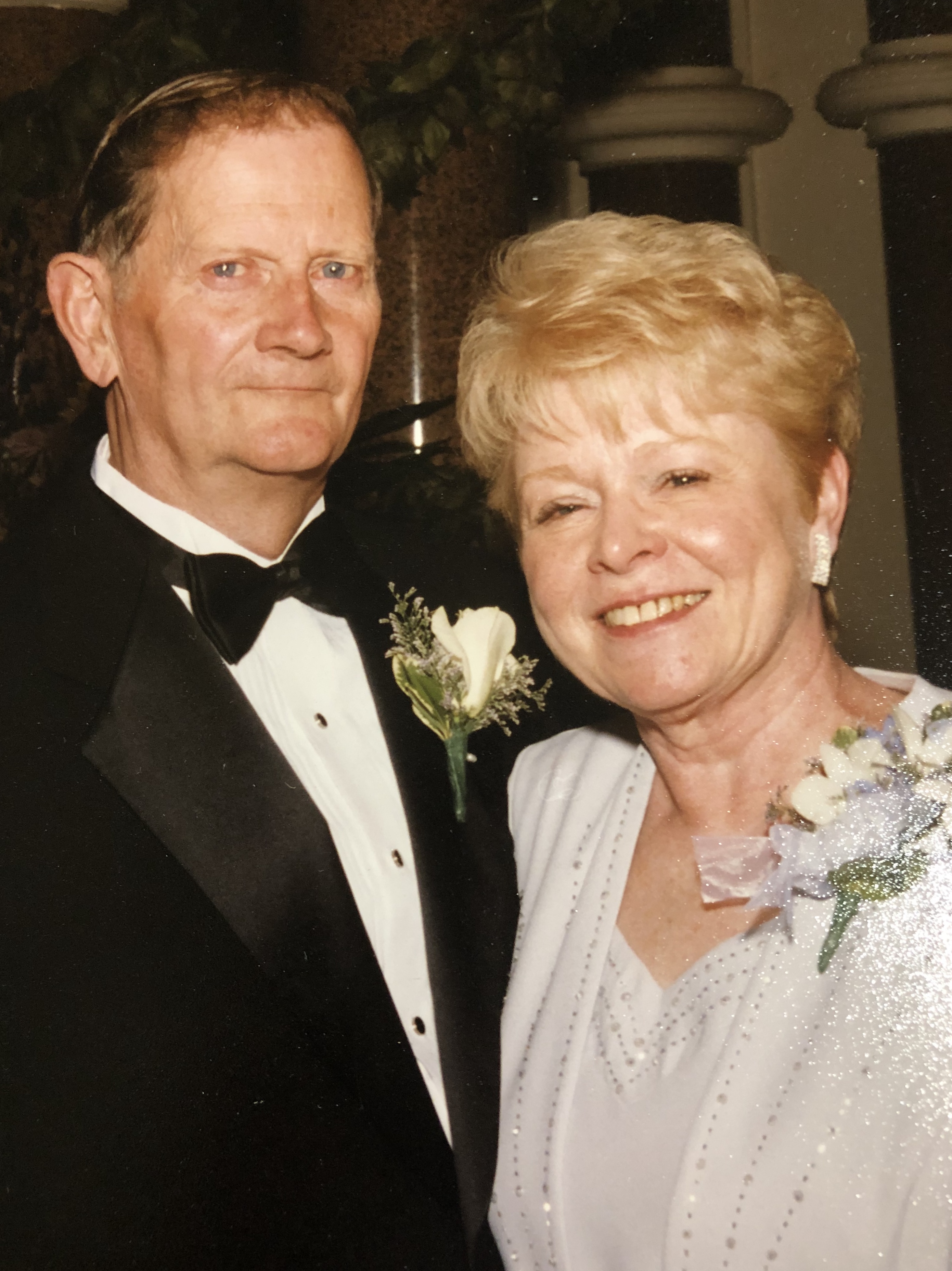My Mom’s Final Journey
I squint as the sun shines through the window in the sunroom of my parent’s house, now a make-shift bedroom. My back aches as I lean up against my mother’s hospital bed railing. My hand wrapped around her hand. I am holding vigil, both scared and anxious for what comes next. My dad yawns with exhaustion. I send him upstairs to rest.
I whisper in my mother’s ear, desperate to tell her all the things that I need her to know. I tell her, it is ok to go. I promise that we will take care of dad. I tell her not to worry. As I speak, she opens her eyes as if she is looking at something in the distance, and she smiles. Her eyes are an unusual crystal blue and beautiful, but I know she isn’t there. I don’t know how I know, but I sense the end is near. I shout to my dad to hurry from upstairs. I get up from my seat to place him near her. He kisses her forehead, and a few minutes later, she takes her last breath. It is heartbreaking to hear my father’s sobs and watch his body wracked with grief. Later that night, I curl up in a ball and cry like a baby.
The next week is a blur of funeral planning. Numb with grief, my dad, sister, and I select the perfect flowers, songs, and readings for my mother’s funeral. We say goodbye to her on a beautiful July day. I am devastated, but grateful that she is at peace and no longer caught in a body that stopped working.
The day after the funeral, my father and I take a ride for ice cream. Sitting on the bench, we talk about what his life will be like without my mom. I worry he will feel lonely, but he said he is looking forward to a quiet house and relaxing for a few weeks. Shouldering the constant stress and worry is a labor of love but exhausting.
Chatting with him on my morning commute becomes routine. No longer tethered to the house, he begins to venture out once again. He enjoys going to daily mass or out for dinner. My sister laughs and tells me that now he listens to country music for hours at a time. I begin to relax as he sets into his new normal.
Losing Both Parents
Three weeks from the day of my mother’s death, I receive a phone call. It is my sister. My dad is in the hospital with a lung infection and is seriously ill. Panicked, I race back to my hometown. Despite the best efforts to save him, he dies four days later. How can this be? I try to fathom the thought of losing both my parents in a month.
His sudden death brings me to my knees. Too stunned to plan, we duplicate the details from my mom’s funeral. I can’t keep it together. No longer composed, I sob on the shoulders of my friends and family. They attempt to console me.
“Your parents lived a good, long life. “
“You should be grateful that you had them for so long.”
“At least they are together now in heaven.”
The days turn into weeks, and I remain in shock. I find myself crying on my way to work, no longer able to use that time to catch-up with my mom or dad. I pick up my phone to call them with exciting news only to realize they aren’t here anymore. Usually resilient, I find it difficult to bounce back and move on.
I sense that friends and co-workers don’t understand my intense grief. After all, my parents were both in their eighties. I search for support to get through my crisis but come up short. A wealth of articles exists for the grief of a spouse or child, but very few discuss grief of an adult child.
Coping with Adult-Child Grief
Finally, I discover a fantastic book, The Orphaned Adult by Alexander Levy, and he sums up exactly what I have been feeling. “Parents provide a unique spot on this planet, which is called home, where we can return if we need to, to be loved, and to feel that we belong.” Yes, that was it! My parents represented my home, a place where I could always go to feel protected and loved. A place where I could go to get validation and unsolicited praise. I was struggling because the security of my home was gone. I felt alone and abandoned, an orphan, at the age of 53.
I am not alone. For many, losing parents means that there is no longer a person who loves us 100% unconditionally. There is a belief that no one will be as concerned about our physical and emotional wellbeing in the way that a parent does. For others, the passing of our parents highlights our mortality. It is grief for the past and the knowledge that we must now carve our path forward.
Since then, I reframed my definition of home as a place where I now receive security and love from my husband and children, and I provide it to them in return. I realize that there is nothing wrong with my grief. Grief is part of love. My pain took root in the fact that I love my parents so much. Loving each other means losing each other, I know my parents will continue to be a part of me.
Finally, writing may not fix grief, but it has given me a valuable tool to deal with it. Recording my thoughts is a vehicle to process my own experience and feel the warmth and love that I have for my parents.


